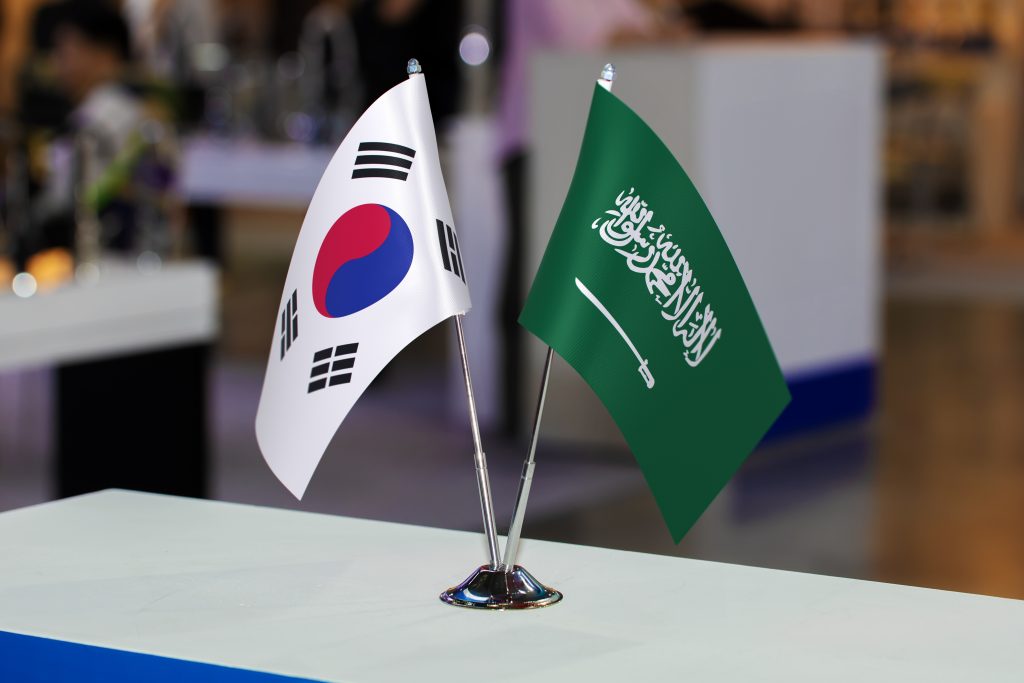The longstanding economic partnership between South Korea and Saudi Arabia, which spans six decades, is now branching out from its core focus on construction and petrochemicals to embrace innovative ventures like smart cities, renewable energy, and advanced transportation solutions.
In the wake of President Yoon Suk Yeol’s trip to the Saudi capital last fall, the two nations have seen a surge in collaborative projects. This synergy has especially gained momentum with the integration of South Korean technological acumen into major urban development initiatives within Saudi Arabia, such as the groundbreaking NEOM city project designed to thrive in the nation’s arid environment.
Amidst this evolving landscape, the Korea-Saudi Arabia Industry and Trade Association (KOSAA) has recently been established under the guidance of Korea Petroleum Association Chairman Park Joo-sun. This organization is dedicated to enhancing the trade policies between Seoul and Riyadh.
The establishment of KOSAA, marked by a ceremony in Seoul with encouraging words from President Yoon and NEOM’s CEO Meshari Almutairi, signals a promising future for Korean enterprises in terms of investment prospects and economic gains. The association has planned for a visit to Riyadh in May to finalize further agreements with the NEOM development.
An official from KOSAA highlighted the organization’s commitment to fostering Saudi-Korean relations, emphasizing the warm reception from CEO Meshari at the inauguration as a testament to Saudi Arabia’s confidence in Korean businesses.
During President Yoon’s recent visit, an impressive tally of 51 business deals and memoranda of understanding were secured, accounting for a total value of $15.6 billion. Notable among these was Hyundai Motor Company’s $400 million investment to construct an assembly plant, backed by the Saudi Public Investment Fund managed by Crown Prince Mohammed bin Salman. Additionally, blue ammonia production projects are being developed in collaboration with Korea Electric Power Corp, POSCO Holdings, and Lotte Chemical in partnership with the Saudi petroleum giant Aramco.
These agreements follow on the heels of the Saudi crown prince’s visit to Seoul, which saw significant trade agreements being signed with major Korean conglomerates totaling $29 billion.
Leading Korean corporations are expanding their footprint in Riyadh, with internet giant Naver showcasing its advanced technologies at the international tech event LEAP 2024 in Riyadh. Naver’s exhibition included its generative AI HyperCLOVA X, cloud services, robotics, autonomous vehicles, and digital twin tech. At the event, Naver Labs CEO Seok Sang-ok presented on ARC mind, a pioneering web-based operating system for robots. Naver also entered into strategic partnerships with Aramco Digital to further digitalization in the Middle East and with the Saudi Public Transport Company to implement an AI-driven traffic management system.
Korean firms are a formidable force in Saudi construction ventures. The past year saw Korean companies landing contracts worth $9.5 billion, the highest since 2013. Historically, over 330 Korean businesses have undertaken more than 1,860 Saudi projects, with a cumulative value of $166 billion, representing a significant share of Korea’s international construction activities.
Trade-wise, Korea’s imports from Saudi Arabia outweigh its exports. Despite a total trade volume of $38 billion last year, Korea’s exports stood at $5.3 billion against imports totaling $33 billion. The bulk of these imports consisted of mineral fuels and oils, along with chemicals, aluminum, and copper.
In the bilateral cooperation landscape, NEOM takes a prominent position. This innovative smart city is under development in Saudi Arabia’s Tabuk province, where Korean companies like Samsung C&T and Hyundai E&C are contributing their technological expertise. Hanmi Global is managing multiple projects within NEOM, including traffic and environmental systems and worker accommodations.
Korean entities are also eyeing opportunities in the development of Sindalah, Oxagon, and Trojena, all part of the expansive NEOM project aimed at creating luxury travel communities, automated industrial complexes, and year-round tourism destinations.
Aligned with Saudi Arabia’s Vision 2030, which advocates for a shift towards environmentally friendly initiatives, NEOM hosted its first Asian exhibition in Seoul in 2023. This event brought together Korean business leaders to explore potential collaborations with NEOM officials, particularly in the arena of smart city development, a field where Korea has significant experience with projects in Busan and Sejong.
Additional joint projects are on the discussion table, with proposals for digital twins of five Saudi cities and a consortium involving PIF and Korean companies to implement modular and automated construction solutions.
